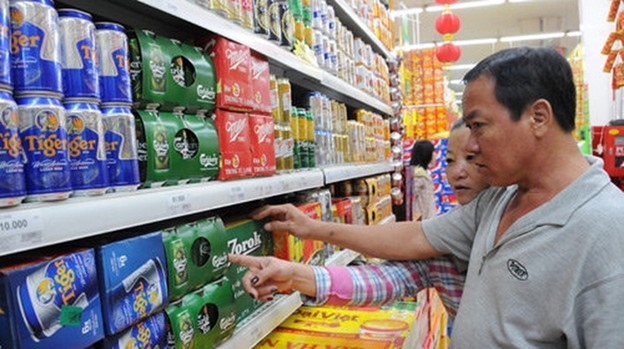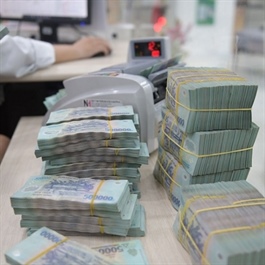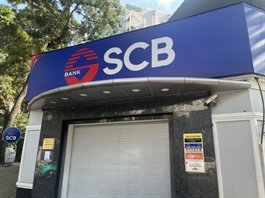Vietnamese beverage firms voice concern over proposal of 100-percent excise tax on alcoholic drinks by 2030
Vietnamese beverage firms voice concern over proposal of 100-percent excise tax on alcoholic drinks by 2030
The Vietnam Beer - Alcohol - Beverage Association (VBA) has written to the Ministry of Finance to voice its members' concern over the ministry’s proposal to raise the special consumption tax on alcoholic drinks to up to 100 percent by 2030.

The Vietnam Beer - Alcohol - Beverage Association has suggested the maximum excise tax for alcoholic drinks at 80 percent instead of 100 percent. Photo: Q.D. / Tuoi Tre |
According to the association, the beverage sector has contributed significantly to the state budget, at nearly VND60 trillion (US$2.3 billion) per year, and created millions of jobs, both directly and indirectly.
However, the sector has repeatedly suffered hindrances given the COVID-19 pandemic, global military conflicts, and policies to limit alcoholic drinks since 2020.
This has led to an alarming plunge in local beverage firms’ output, revenue, and profit.
In particular, the beverage sector’s inventories in 2023 surged 120 percent over 2022. Inventories in the second quarter of this year also skyrocketed nearly 128.9 percent.
Meanwhile, the Ministry of Finance had earlier proposed imposing an excise tax rate of 80 percent on beer, wine, and spirits with alcohol by volume of at least 20 percent by 2026 and gradually increase the rate to 100 percent by 2030 from the current 65 percent.
For alcoholic drinks with alcohol by volume of less than 20 percent, the ministry sought a special consumption tax rate of 50 percent by 2026 and 70 percent by 2030, well above the current 35 percent.
According to the VBA, the proposal did not accurately represent the current state of the Vietnamese beverage market, as the local beer industry has experienced a significant drop in production and revenue, with some breweries shutting down.
As a case in point, Heineken Vietnam, the country's beer market leader with a 37.6 percent share, saw a double-digit decline in consumption in 2023, marking its first such decrease in decades.
Twenty-six breweries of Saigon Beer - Alcohol - Beverage Joint Stock Corporation, commonly known as Sabeco, which accounts for 34.4 percent of the market, in 20 localities have reported a drop in output, revenue, and profit since 2021.
They have been struggling as costs have soared 20-40 percent, while the selling prices of products remain unchanged.
Similarly, the Hanoi Beer - Alcohol - Beverage Joint Stock Corporation reported a nearly-30-percent drop in sales and a 10-percent reduction in budget compared to 2019. As a result, they have laid off a quarter of their workforce.
Meanwhile, Hanoi Liquor Joint Stock Company suffered losses for 27 consecutive quarters as of the end of last year, totaling VND457.7 billion ($17.9 million).
The VBA added that the excise tax hike proposal would encourage consumers to choose products with lower prices, those of unclear origin and poor quality, and even smuggled and fake products.
The tax hike would reduce the competitiveness of locally-made products, pave the way for the trade of smuggled products, and pose a high risk to consumers’ health.
As for soft drinks, the excise tax hike proposal is unfeasible to reduce the obesity rate as Vietnam’s soft drink consumption remains low compared with other countries in the world, according to the VBA.
As a result, the association suggested the maximum special consumption tax for alcoholic drinks should be 80 percent instead of 100 percent as proposed by the Ministry of Finance.
The ministry should also extend the road map to elevate the tax rate to stabilize the local market and facilitate enterprises adapting to the proposed hike.




























